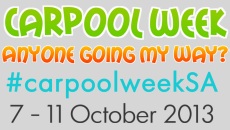|
| Go to calendar |
| Calendar: | elma.pollard@gmail.com |
| Title: | International Coastal Clean-Up |
| When: | 15.09.2012 |
| Location: | worldwide |
| Description: | On the third Saturday of September each year, volunteers around the world take part in the world's biggest clean-up. This year marks the 27th annual International Coastal Clean-up (ICC) when people head to the beaches and begin removing debris from shorelines, waterways and oceans. In 1986 the Centre for Marine Conservation held the first beach clean-up on the Texas coast with the aid of 2 800 volunteers. Since then, the ICC has included inland lakes, rivers, streams and underwater sites in lakes, rivers and streams in the annual clean-up. The problem of marine debris does not necessarily start at the ocean but is dumped further inland and washed down into the oceans. Each year there is a vast increase in the number of marine animals injured or entangled in debris found in the oceans. Turtles mistake floating bags as food and thousands of seals, whales, dolphins, sharks and birds die from entanglement in fishing line and other debris. The aim of the clean-up is: · to remove debris from all bodies of water; · to collect valuable information about debris; · to heighten public awareness of the causes of litter and debris; · to make a positive change and to promote water pollution prevention efforts worldwide. What effect does land-based pollution have on our ocean ecosystems? Douw Steyn, Director Sustainability, Plastics SA. Tel: (011) 653 4794. Cell: 083 301 8157. Fax: 086 158 313. E-mail: Douw.Steyn@plasticssa.co.za Hands-On Coastal Library; Waste Resource Pack; Hands-On: Stream and Pond Life; A Beginner's Guide: Seaweeds (algae); A Beginner's Guide: Some Common Waterbirds. www.oceanconservancy.org; www.cleanup-sa.co.za/ |
| Copy: | Copy to my calendar |







